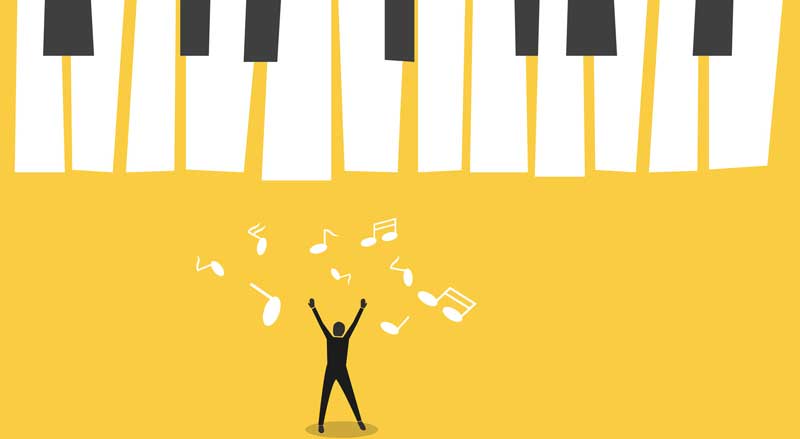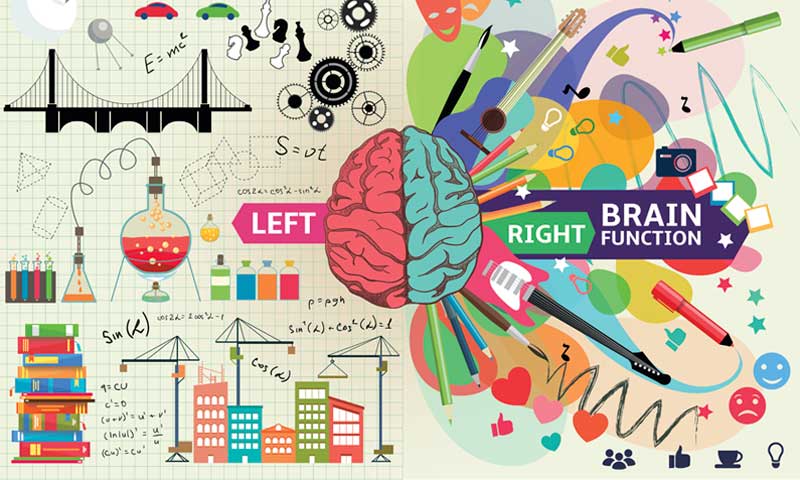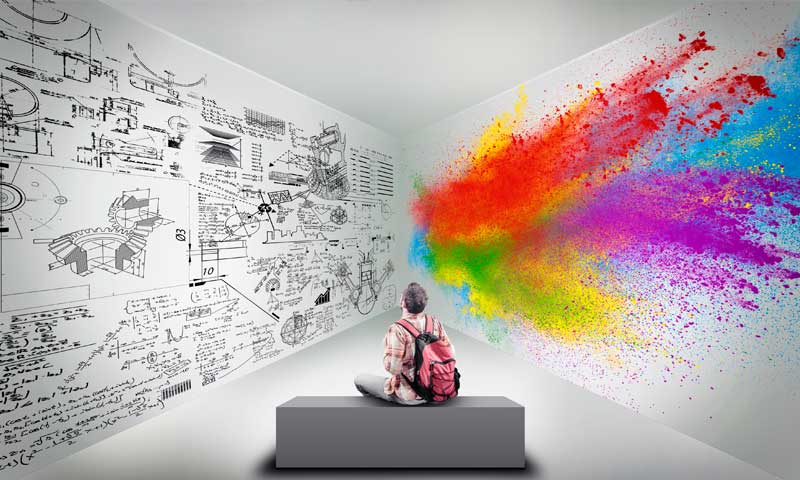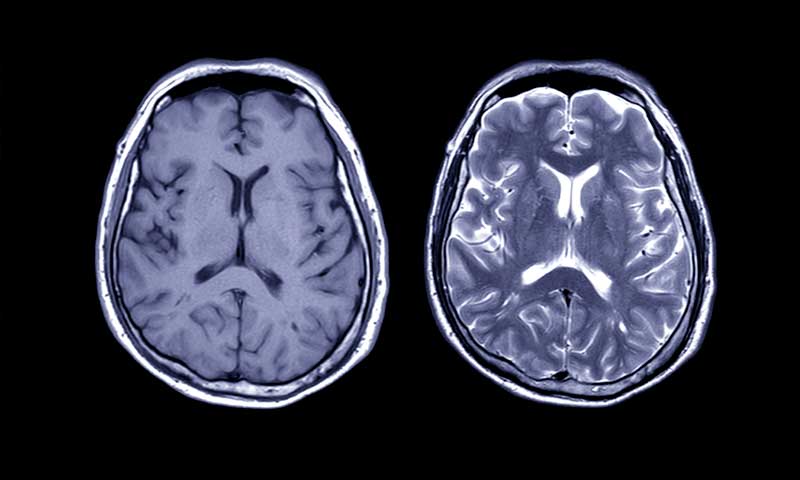

In this blog, we’ll cover everything you need to know about the power of music for our brains. Whether you’re an active musician or a regular music-lover, we’ve got you covered.
The list of music’s benefits will have you putting in your headphones and turning the volume all the way up. Or it may have you finally pick up that instrument you’ve always wanted to learn.
Read on to find out how music can transform our brainpower and health.
“I got a fever… and the only prescription is more cowbell.”
Christopher Walken was onto something. Music may be the closest thing to a magical cure-all that we’ve got.
Listening to a song at safe volume levels can be one of the healthiest things you do all day. Your favorite music leaves you happier, more creative, and a healthier person.
Playing and instrument of singing also has benefits. You may be wondering how much a song can affect your quality of life. So, let’s compare the effects music has on the brain, whether you’re playing or listening.

Let’s go back to the basics. Your brain has two hemispheres: the left and the right. The left hemisphere controls the right side of the body, logical thinking, math, and science concepts.
The right hemisphere of your brain handles the left side of your body. It controls our creative and emotional endeavors. This means the right hemisphere is the first activated when listening to music.
Even imagining a song in your mind ignites the creative side of your brain.
Improving the way our brains’ hemispheres communicate can help with retaining information. This makes it important when learning a new skill, like playing an instrument.
Is there a song that brings a wave of memories back the second you hear it?
Certain songs have a way of transporting us to a different time and place. They remind us of being happy or young or in love. Whatever the emotion they evoke, music and memories go hand-in-hand.
A study by Wake Forest Baptist Medical Center found that listening to your favorite song increases connectivity in the brain. This discovery is paving the way for research into Alzheimer’s.
Patients with dementia respond well when they hear beloved songs from their youth. Because there is an emotional connection to the music, there is a form of recognition when played.
The study shows that music mitigates the aging process and protects the brain from regressing.
While listening to music can improve memory, physically playing music has even greater effects on our memory.
A meta-analysis of medical research shows a difference in musicians’ and non-musicians’ memory. Research shows that musicians are better in tasks requiring long-term and working memory.
The same study also shows a correlation between the number of years played and increased cognitive abilities. The more years playing an instrument, the better a person’s memory works.

When listening to music, our brains light up like a Christmas tree. Music exercises your auditory, cognitive, emotional, and motor processing skills. The spike in activity leads to more communication between the brain’s two hemispheres.
Music boosts the healing progression of our bodies. That is why physical therapists use music in sessions with their patients.
Our mood can affect our choice of music, but our choice in music can also affect our mood. For example, say you’re going through a breakup. You might turn to a sad, sappy tune because you need a “good cry”.
Or if you’re exercising you may choose empowering music that uplifts your mood. Working out with upbeat and energetic music will increase your intensity.
Whether you want to stay in a certain mood or change it, music can handle both.
Music does the following for its listeners:

For musicians, the effects of music on mental health are more pronounced. Musicians can express deep emotions like trauma or grief when they play.
Each piano key or guitar strum helps them process their emotions in a healthy way. Their feelings don’t have to stay bottled up inside. They have the ability to set them free with song.
Music is also a great way to calm anxiety. Having both your mind and your hands engaged helps reduce intrusive thoughts.
Even singing has a similar musical expression. Often, singers can work through complex emotions with their performances.
Not only that, but it appears that music training makes musicians more empathetic.

Music does not belong to a place or time. A lyric, a riff, or a chord from centuries ago can inspire someone today.
Music has always been revolutionary, and it continues to be today because of the emotional response it evokes.
Listening to music can changes your ability to perceive time. Which explains why a road trip with no radio seems unending or why awkward silences seem to last forever.
Crank up some fast-paced tunes and get a good workout in. The right music can help you keep pace and energy up while exercising. Music can also maintain motivation during sports performances or before big races.
Make a habit of working out with music. Over time, your body will begin to associate exercising with pleasure.
You’ll get to listen to your favorite music while training your brain to love working out. Win-win.
For musicians, timing is everything. Even one small second out of tempo and a song can read much differently.
Musicians show more accurate timing when performing a musical scale exercise. Learning an instrument requires increased brain activity. An increase in brain activity leads to better problem-solving skills and time-management skills.

As your brain processes music, it releases the neurotransmitter called dopamine. You may have heard of this natural, mood-improving chemical in our brains.
But did you know dopamine can also improve alertness and creativity?
Furthermore, dopamine is the chemical responsible for helping us to create a routine. We can build healthy habits when our brains release dopamine. It is the physiological way our body encourages us to repeat enjoyable behaviors.
Thus, you can have a healthy and creative “addiction” to music. Luckily the most common side effects of music addiction are positivity and health.
Music, simply put, is a drug of the best kind.
Have you ever heard of the “Mozart Effect”? It’s when people perform better on cognitive tests after listening to classical music.
Music is both creative and mathematical. This means music requires both hemispheres of the brain to interact at the same time. This then leads to stronger connections and recall.
For example, mnemonic devices can help people memorize information for tests. This is because you are fostering more connections between your brain’s hemispheres. Having stronger connections increases your ability to access stored information. This is great for kids still in school, both socially and academically.

Researchers are able to study the brain of musicians through MRI scans. They found that performing a song activates different areas of their brains at the same time. This effect is equal to a “full-brain workout.”
Did you know the brain changes in response to musical training? Learning to play an instrument increases gray matter in our brains.
Gray matter houses our brain’s neurons. It also controls the movement of our muscles. When keeping our muscles active, we can improve the gray matter in our brains. This leads to being able to “train” our brains with activities, like playing an instrument.
Musicians also exhibit higher levels of executive function than non-musicians. Executive function is the brain’s ability to multitask complicated actions like planning.
Learning an instrument is exercising your brain to increase your possible brainpower.

So, which will you be? A listener or musician?
Whether you are listening to a song or strumming on your guitar, music is powerful. The benefits that music brings to our lives are endless.
At B Natural Piano and Music School, we do more than sell pianos. We provide professional music lessons for any instrument seven days a week.
If you’re looking for a new hobby that can increase your mood, mental health, and brainpower, contact us. We’ll get you started with virtual or in-person lessons today!